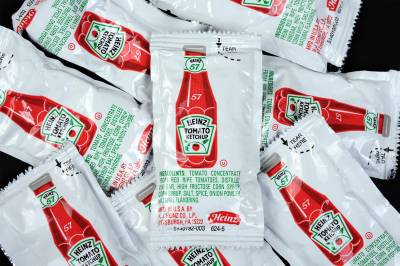Connect with a verified veterinarian in minutes. Licensed vets are available 24/7 to answer your questions. No need to worry about your furry family member.
Who doesn’t love croissants? What’s better than a croissant just out of the oven, smothered with butter? Many pet parents love croissants, and you can bet their dogs also expect them to share a bite of these lovely pastries! But what happens if a dog eats a croissant?
Has your dog eaten a croissant? Are you worried the croissant will make him sick? If so, you’ve come to the right place. We understand it can be scary when your dog eats something he shouldn’t.
We’ve put together some information about croissants and whether they can make a dog sick. Let’s get started!
What is a Croissant?
Croissants are a buttery, flaky pastry that originally came from Austria. The name “croissant” means “crescent shape.” The dough for this pastry is a bit like puff pastry, but it doesn’t have quite as many layers to it. The dough includes layers of butter between dough layers. Once the rolls have been baked, they come out in a crescent shape and smell wonderful! And they taste even better than they look or smell!
Did you know that croissant rolls were first made during the Renaissance? And crescent-shaped cakes have been around since ancient times. Croissants have long been baked by Austrians, Italians, and the French. Croissants became very popular in the US in the late 1970s, when commercially prepared, the unbaked dough became available. The pre-made dough made crescent rolls easy and fast to make, so the family could enjoy these lovely rolls fresh from the oven!
Croissants are usually made with flour, butter, eggs, sugar, yeast, and water. The recipes usually include a ton of butter.
While croissant rolls are safe for humans, what about dogs? Can a croissant roll make a dog sick?
Croissants & Dogs
Croissants can be safe for dogs, but only in very small amounts, and they must be plain. The problem is that croissants are made with a lot of butter, sugar, and milk. Butter can cause pancreatitis in dogs, while sugar is a known toxin for dogs. Milk can also pose a problem for dogs who are allergic to dairy products or lactose intolerant.
However, other ingredients in the croissants could cause a problem. For instance, some croissants are made with raisins or chocolate. Both of these ingredients are toxic to dogs.
What’s more, if a dog eats too many croissants, he could develop the following conditions:
- Gastric dilatation and volvulus
- Alcohol poisoning (from the yeast in raw dough)
- Nausea
- Gastroenteritis (in dogs that are lactose intolerant)
- Pancreatitis
- And more
So, if your dog has eaten raw croissant dough, then call the vet immediately. This may be an emergency.
In addition, if your dog has diarrhea and vomiting that last longer than 12 to 24 hours, it’s best to call the vet. And if your dog has an allergic reaction after eating croissants, call the vet immediately.
Some dogs may develop pancreatitis that can include symptoms such as abdominal pain & swelling, diarrhea, vomiting, lethargy, lack of appetite, and more. If your dog has any of these symptoms, call the vet immediately. Pancreatitis that’s not treated can be life-threatening.
As you can see, croissants are not very healthy for dogs. If your canine companion has eaten one croissant or a part of a croissant, he should be OK. However, if he has any of the issues outlined above, it’s best to call the vet!
Connect with a verified veterinarian in minutes. Licensed vets are available 24/7 to answer your questions. No need to worry about your furry family member.

Kyoko
Kyoko is from a family of 3 and moved to New York with her parents and siblings when she was 13. Kyoko is fond of spending a great amount of time with pets, specifically her beagle Luna and cat Missy. Her boyfriend often complains that she spends too much time giving attention to their animals. Kyoko has written dozens of articles concerning pets and is aiming at owning a pet shop one day!
Review symptoms, medications & behavior to keep your pets healthy with a Vet Online in just minutes.
Ask a Vet Live Now





